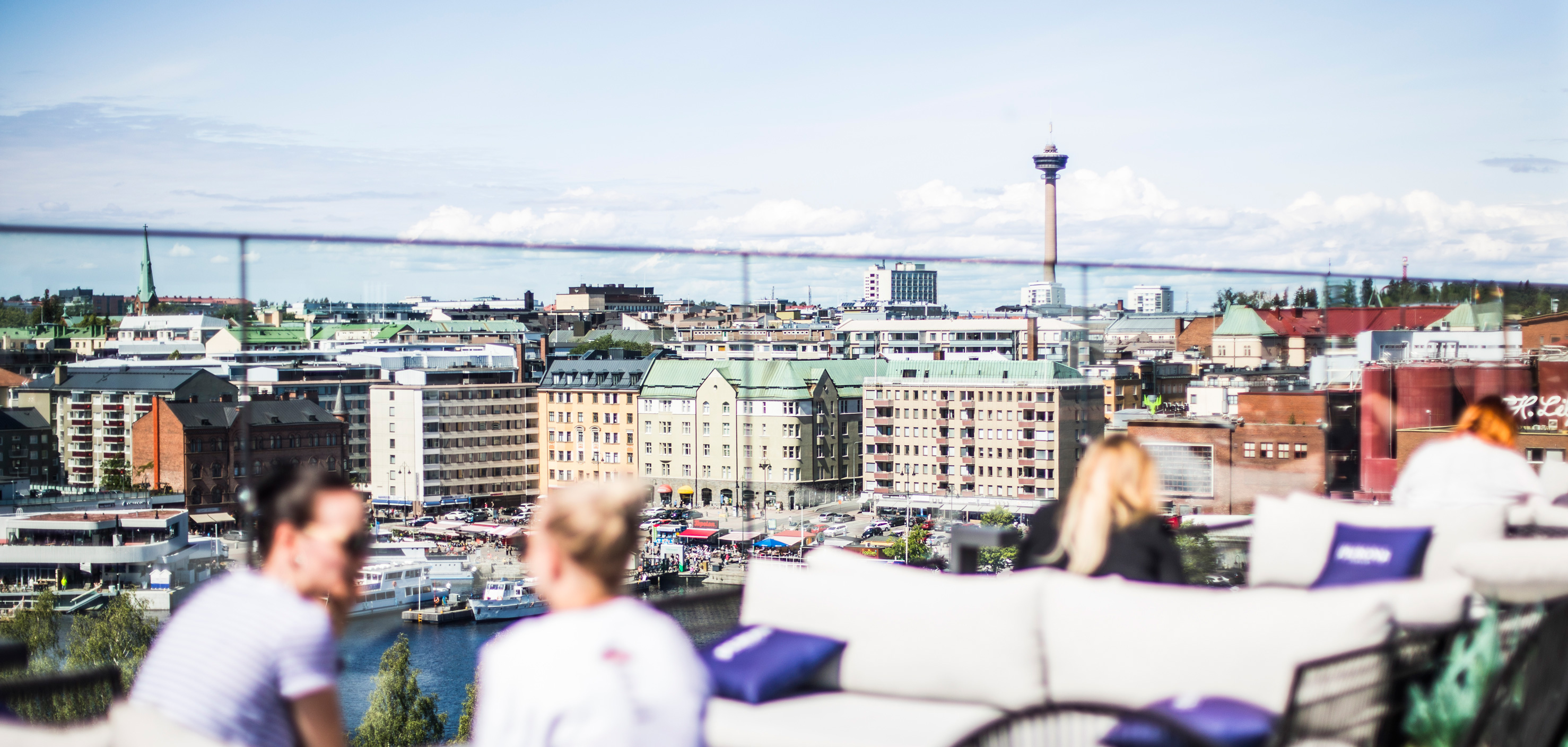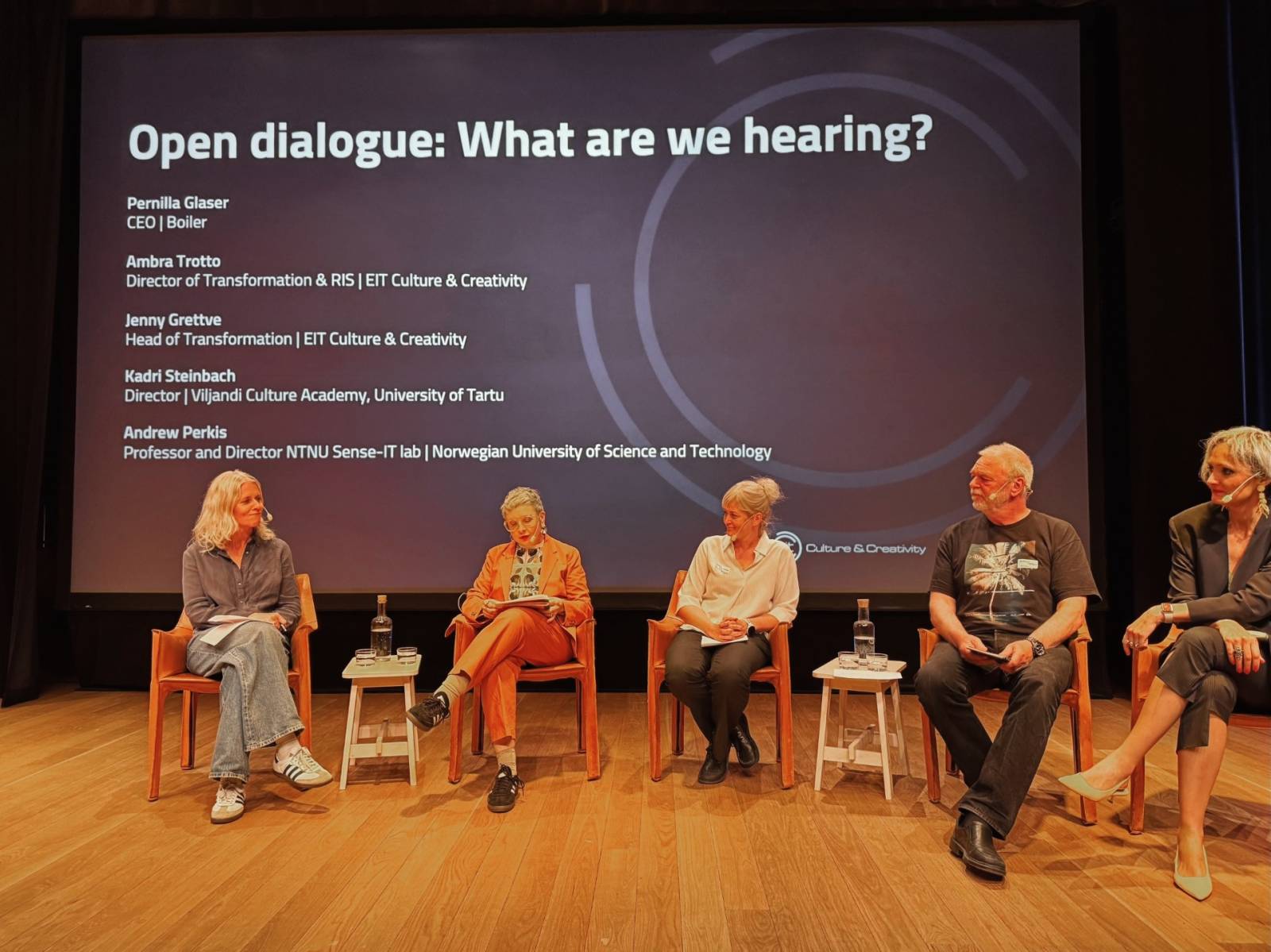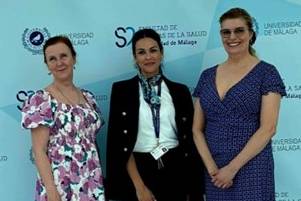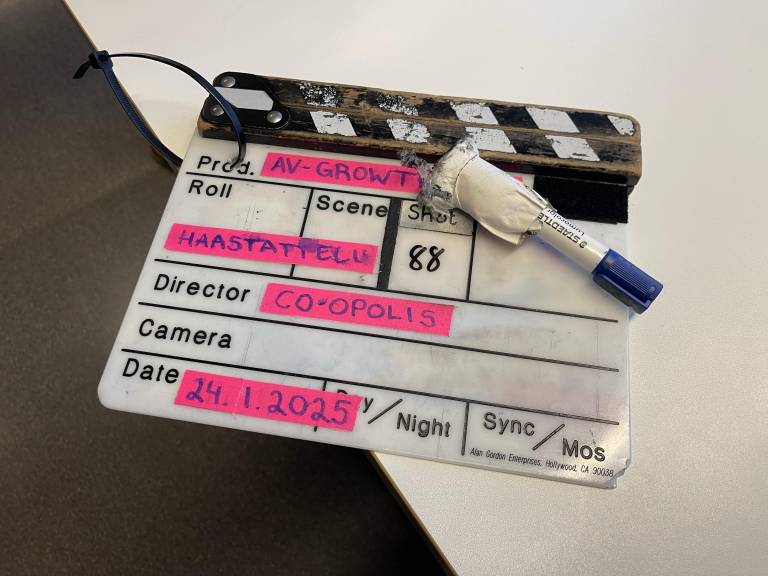The EIT Culture & Creativity North Regional Partner Meeting and Open Day were held on June 10–11, 2025, at the prestigious Moderna Museet in Stockholm. The event brought together creativity sector experts, developers, and decision-makers from across Europe to discuss current themes and future collaboration opportunities.
TAMK was represented by Pirita Ihamäki and TUNI was represented by Riku Roihankorpi who gained valuable new contacts and identified potential partners for future projects during the event. The meeting provided an inspiring environment for developing new ideas and strengthening international cooperation. Creative competence is increasingly seen as a key driver of sustainable growth and innovation across various sectors—not only within the cultural field but also in technology, education, and business.
A recurring theme throughout the event was the need to systematically and knowledge-basedly develop the creative industries. However, this is not a straightforward task, as defining and identifying the creative sectors remains a challenge. Discussions emphasized that creativity is not limited to specific industries but permeates society as a whole, influencing the economy, well-being, and sustainable development.
The meeting also explored the values of the EIT Culture & Creativity network’s Northern region and how these relate to other cultural contexts. Participants reflected on how regional characteristics can be acknowledged in European collaboration and how the Northern perspective can enrich the network’s overall activities.
The event began with a joint lunch, followed by topical presentations, regional updates, and in-depth discussions. Particular attention was given to smart, sustainable, and resilience-supporting leadership, which was seen as a key factor in developing the creative sectors. Participants joined parallel sessions that addressed topics such as national CCSI strategies (Cultural and Creative Sectors and Industries), the New European Bauhaus innovation ecosystem, and the role of systems thinking in tackling complex challenges.
One of the most valuable aspects of the event was the opportunity to network with other European actors. Discussions, workshops, and informal encounters provided fertile ground for new collaborations and ideas. The event offered participants a unique opportunity to learn from leading experts in the field, share their own experiences, and build a shared understanding of the future of the creative industries.
The Stockholm meeting reinforced TAMK’s and TUNI’s commitment to international cooperation and the development of the creative sectors. Participation in the EIT Culture & Creativity network enables bought universities to influence European development directions and bring Finnish expertise into a broader context.
Writer Pirita Ihamäki





